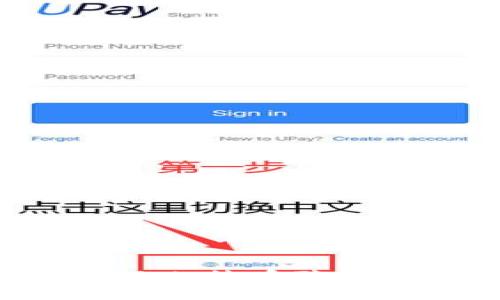随着互联网的不断发展,社交媒体的功能也逐渐演变。Web3时代的到来为社交短视频软件的设计与运营带来了全新的机...
比特币作为一种去中心化的数字货币,越来越受到人们的关注和使用。伴随而来的是对比特币钱包的各种需求,尤其是隐藏钱包,也就是那些可以提供更高隐私保护的工具。在这篇文章中,我们将深入探讨比特币隐藏钱包的概念、使用方法、管理技巧,以及常见问题的解答,帮助用户在这个日益复杂的加密货币世界中,安全和高效地管理他们的比特币资产。
比特币隐藏钱包,通俗来说,就是一种更加注重用户隐私和安全性的比特币存储方式。这种钱包通过各种技术手段来保护用户资金和交易的匿名性。例如,它们可能使用地址混淆、交易隐匿等技术来确保外部人员无法轻易追踪交易者的身份或其持有的资产。
比特币隐藏钱包通常有几种不同的类型,包括桌面钱包、移动钱包以及在线钱包等。它们的共同之处在于,提供了增强的隐私保护,帮助用户在交易期间保持匿名,并最大程度地保护个人信息不被泄露。

比特币隐藏钱包的工作原理主要基于加密技术和网络安全机制。以下是一些关键机制:
在选择比特币隐藏钱包时,有几个关键因素需要考虑:

一旦选择了比特币隐藏钱包,如何有效管理也是很重要的。以下是一些有效的管理策略:
虽然比特币隐藏钱包可以提供高度的隐私保护,但它们也伴随了一些风险。
Regular bitcoin wallets and hidden wallets primarily differ in their approach to privacy and security. A standard bitcoin wallet may not take substantial measures to ensure transaction anonymity. It generally uses unique addresses for each transaction, but these can be linked back to the user through various means, especially if KYC (Know Your Customer) protocols are involved when obtaining the wallet.
On the other hand, hidden or privacy-focused wallets employ advanced techniques to obscure the identity of users and their transaction details. For instance, they may constantly generate new addresses for receiving funds or use technologies like CoinJoin, which mixes transactions from various users to make it challenging to trace any single transaction back to any user. Additionally, hidden wallets may not require personal identification to set up, enhancing user anonymity.
Ensuring the safety of assets in a hidden bitcoin wallet involves a multi-layered approach:
Using hidden bitcoin wallets can come with tax implications that vary greatly by jurisdiction. In many countries, cryptocurrencies are treated as taxable assets. Thus, even if transactions made through a hidden wallet might seem anonymous, the profits made from trading or selling bitcoin could be subject to capital gains tax.
For example, if you purchase bitcoin at a low price and sell it at a higher price, the profit you make is generally taxed as a capital gain, regardless of how hidden your wallet may be. However, not reporting possibly leads to tax evasion implications, especially if you are found out later on. It’s strongly advised to keep thorough records of all transactions to manage tax obligations legally and efficiently.
Moreover, some jurisdictions may require users to disclose their holdings and transactions regardless of the privacy features of the wallets used. Users should consult local tax laws or a tax advisor knowledgeable in cryptocurrency to ensure compliance with reporting obligations.
While hidden wallets provide increased anonymity, it is a misconception that they are solely designed for illegal activities. The gear towards enhancing privacy can also be beneficial for legitimate uses, such as protecting individual financial data from prying eyes.
However, the very anonymity that makes hidden wallets attractive for privacy advocates also draws the attention of those with malicious intentions. There's a valid concern regarding their use for illegal activities such as money laundering, drug trafficking, or financing terrorism. The dynamic nature of cryptocurrency regulation means that such activities are viewed with extreme scrutiny by law enforcement agencies.
Users of hidden wallets should be acutely aware of the implications of their transactions. Valid and ethical use of a hidden wallet should remain well within legal boundaries while respecting local laws and regulations regarding cryptocurrency transactions.
The future of hidden bitcoin wallets is tied to the broader evolution of technology and regulations related to cryptocurrencies. As privacy concerns grow across the world, more users are motivated to seek out wallets that offer robust privacy features. As budgets around surveillance and tracking cryptocurrencies increase, the demand for privacy-centric wallets will likely continue to rise.
However, with increasing scrutiny from regulatory bodies and the introduction of new global regulations, the frameworks surrounding cryptocurrency transactions are becoming stronger. The challenge will be creating wallets that comply with legal requirements while still offering strong privacy guarantees to users.
Innovation in cryptography and transaction verification will likely see the development of even more sophisticated technologies aimed at balancing regulatory compliance and user privacy. Burner wallets, stealth addresses, and privacy coins like Monero or Zcash may become more integrated into mainstream hidden wallet options to meet user demands.
Moreover, as user education improves and awareness of privacy rights expands, we may see an increase in the political and social support for crypto anonymity, which could also lead to further mainstream acceptance of hidden wallets, provided they can maintain a legal footing in an increasingly regulated space.
结语说到这里,希望本文能够帮助您深入理解比特币隐藏钱包的使用与管理,并提升您在加密货币领域中的安全性与隐私保护意识。无论是在选择 wallet 还是在进行网络交易时,保持对隐私安全的关注至关重要。